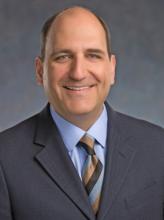CHICAGO – Despite more resources than in the past, physicians who are depressed, burned out, or stressed still find it difficult to reach out for help.
"Show me a physician, and I’ll show you a physician under stress," health law attorney Julian Rivera said at a physicians’ legal issues conference held by the American Bar Association. "Show me a physician, and I’ll show you a physician who is suffering. It is endemic."
One of the first steps to mitigating physicians’ feelings of depression and stress is recognizing the problem early and overcoming the stigma associated with getting help, Dr. Luis Sanchez said at the conference.
"In order to be a good physician, the physician must be a good patient," said Dr. Sanchez, director emeritus of Physician Health Services in Waltham, Mass., a referral program for physicians with substance abuse and behavioral health conditions. "That means we have to be able to take care of ourselves and have someone who is a doctor take care of us ... We need to have our illnesses diagnosed, we need to have them treated, and we need to have a support system."
Better self-awareness among physicians is essential, said Mr. Rivera, a partner in Husch Blackwell’s Healthcare, Life Sciences & Pharmaceuticals business unit in Austin, Tex.
"Suffering physicians generally have very low awareness of how they are functioning in their social, business, and clinical environments," he said in an interview. "Increasing self-awareness, developing coping mechanisms, and adoption of a strong social and professional support network are keys to reducing stress and avoiding burnout."
Frequently, a suffering, stressed physician becomes a disruptive physician, thus creating additional concerns for employers, peers, and patient care, Mr. Rivera added.
He recommends that physician leaders, administrators, and colleagues work together to identify when physicians are afflicted and schedule business meetings with the doctors to address the issue. Mr. Rivera emphasizes that the meetings should be "business like" and not adversarial or casual.
"Dealing with suffering physicians in a compassionate, business-like environment where physicians leaders and anyone else in the enterprise who can be helpful communicate openly with the physician in a plain, organized, and well-facilitated manner is invaluable to connecting with afflicted physicians," he said. "The goal of those meetings should be to hear everyone’s perspective, reach agreement about the challenges faced, and agree on action terms."



